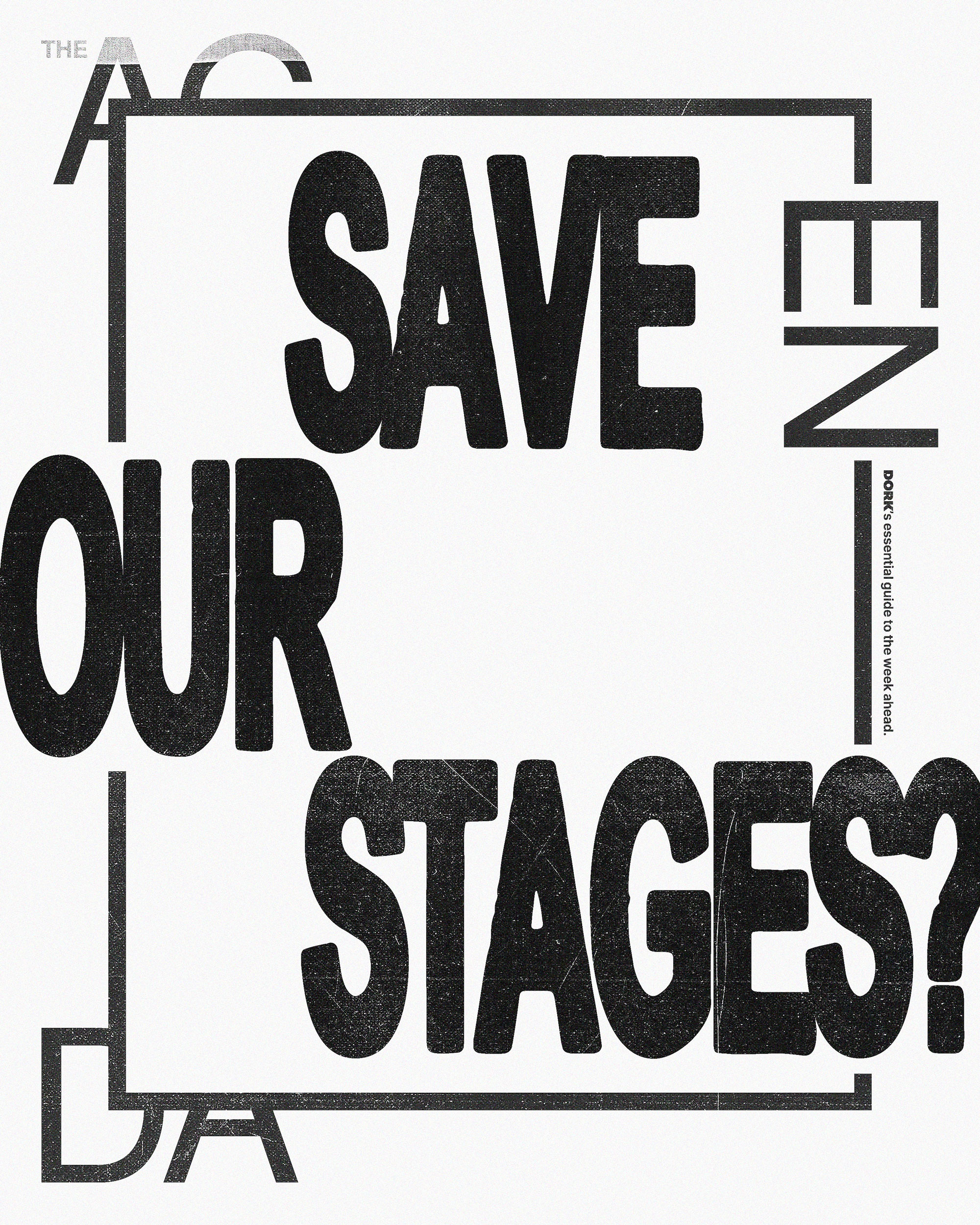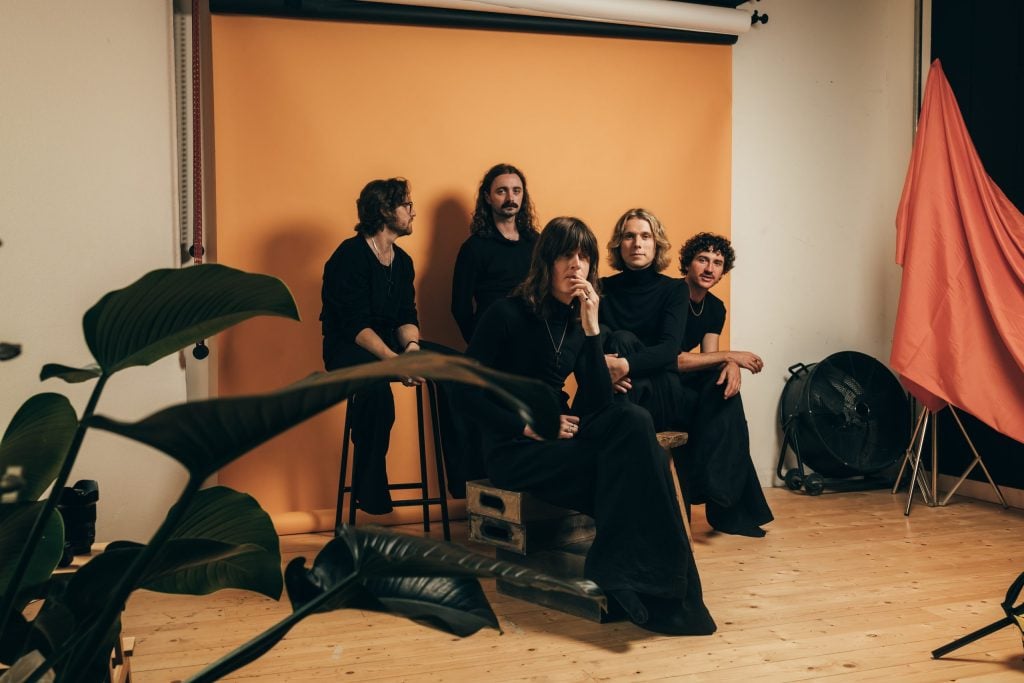
On Saturday night at the O2 Arena, the Brit Awards delivered its usual spectacle of pop pageantry and pyrotechnics – but it was the winners’ speeches that struck the loudest chord. One after another, artists used their moment on stage not for glib thank-yous or cheeky stunts but to sound the alarm about the crisis gripping the UK music industry’s foundations.
Rising Star winner Myles Smith set the tone first with a bold call-out to those in power: “If British music is one of the most powerful cultural exports we have, why have you treated it like an afterthought for so many years? How many more venues need to close? How many more music programmes need to be cut before we realise that we can’t just celebrate success; you have to protect the foundations that make it?”
Smith’s words, broadcast live in primetime, reverberated far beyond the arena. In a venue synonymous with polished performances and corporate sheen, this 26-year-old newcomer from Luton openly challenged the government, arena owners, and industry executives to do more for grassroots music – hardly the typical Brit Awards banter. And Smith wasn’t a lone voice; he was the opening note in a crescendo of on-stage pleas to save the embattled ecosystem that nurtures British music’s future stars.
Moments later, Femi Koleoso – drummer and spokesman of jazz quintet Ezra Collective – took the podium as his band collected Group of the Year, and he used it to bang the drum for music education. “This moment right here is because of the great youth clubs, and the great teachers and the great schools that support young people playing music,” he said, crediting community programmes for his group’s very existence.
Koleoso then broadened the point, linking music to solutions for society’s wider ills: “The reason we continue to bang this drum is because so many of the problems that face greater society in the UK. We’re unsure of how to fix it, but the solution lies with giving a young person a trumpet. The solution lies in giving a young person a saxophone”. In plain terms, he argued, invest in youth music, and you invest in hope – in giving kids “a dream, an aspiration and a goal,” as he put it earlier.
It was an impassioned appeal for a revival of the underfunded music programs and youth clubs that once provided a lifeline for aspiring musicians. (Koleoso’s point is borne out by hard numbers: between 2010 and 2019, around 30% of youth clubs in London shut down due to austerity cuts, and the decline in school music is stark – 42% of state schools in England no longer even offer Music GCSE to any students). In front of the music industry’s elite, the drummer essentially pleaded: give the next generation the tools to make music, and you’ll tackle more than just the music industry’s problems.
The theme continued when The Last Dinner Party took the stage to accept Best New Artist. Bassist Georgia Davies, speaking for the London indie-rock quintet, delivered a frank reality check about the plight of the venues that gave her band – and countless others – their start. “We wouldn’t be a band, and a lot of the artists here would not be bands either, without the UK’s incredible independent venues. They are the lifeblood of the music industry, and they are dying,” Davies warned.
In a speech that earned loud cheers from the arena’s floor, she went on to call out the imbalance between the music industry’s top-end and grassroots levels. “And if venues like this, like the O2 – like arenas, stadiums across this country – contributed even a tiny bit towards these independent venues, then we would not be losing them at this alarming rate,” she implored. “None of this would be happening without them. In a time when art is under threat, that is the most important thing to keep supporting.”
It was a direct challenge to the big players – the promoters, major venues and ticket sellers raking in billions – to share a slice of the spoils with the little rooms and local clubs that incubate every big act.
For an awards show often remembered for outlandish performances or celebrity gossip, this unified front of industry protest cut through. After all, the Brits are an establishment event – sponsored by Mastercard, aired on ITV, and typically a celebration of commercial triumph. Yet here were multiple winners using their spotlight to highlight what’s often swept under the red carpet: the troubles at the heart of British music.
The urgency is well-founded. Britain’s small venues – the pubs, clubs and 200-capacity halls that once thrived in every town – are in peril at a scale that would have seemed unthinkable a decade ago. In 2023 alone, at least 125 grassroots music venues closed their doors for good. The toll of these closures is nationwide: from famed London haunts to regional staples like Bath’s Moles Club – a 45-year-old venue that helped launch acts from the Eurythmics to Oasis – which shut down in December after struggling to stay afloat. Those that haven’t closed are hanging on by their fingernails.
According to the Music Venue Trust’s latest report, nearly 44% of the UK’s grassroots venues operated at a loss last year. Profit margins average effectively zero (about 0.5%), and that was before this winter’s financial blows. It’s a perfect storm of rising costs and dwindling support: skyrocketing energy bills (one beloved venue in Hull saw its electricity costs quadruple in a year), sharply higher business rates, staff shortages, and the lasting hangover of the pandemic.
The “foundations” that Myles Smith urged Britain to protect are indeed cracking. Many of the people running grassroots venues are effectively subsidising the live music scene out of love, not profit – collectively shouldering an estimated £162m burden just to keep shows going in 2024, by one analysis. And when those places go dark, an entire talent pipeline is cut off. “Without us, there are no big venues, there are no big tours, there are no artists. They all started at places like this,” as one venue manager put it bluntly.
It’s the same sentiment that The Last Dinner Party and others hammered home on the Brits stage: today’s arena headliners were once unknown kids jamming in tiny backroom clubs. No grassroots circuit, no future superstars – it’s that simple. Even the industry’s top brass know this. “I don’t think that large-scale arenas have done enough to support grassroots venues,” admitted Gemma Vaughan, an executive at Manchester’s AO Arena (the largest indoor arena in Britain). “We have to support grassroots venues and musicians to help feed our talent pipeline.”
When the person running a 21,000-capacity arena is echoing the concerns of a fledgling indie band on the Brit Awards stage, it’s a sign that the problem can’t be ignored much longer.
So, what is actually being done? One positive development is a proposed ticket levy on big concerts. Late last year, the UK government – spurred by recommendations from Parliament’s culture committee – threw its weight behind the idea of a voluntary levy on all stadium and arena tickets, with proceeds funnelled back to grassroots venues. In theory, this asks the biggest commercial players in live music to reinvest a small portion of their windfall to shore up the base of the industry. It’s not a tax, but a requested show of goodwill: Creative Industries Minister Sir Chris Bryant called on the sector to adopt the levy, saying, “Without a flourishing grassroots music industry, the rest of our music industry will wither.”
Some artists aren’t waiting for mandates. Coldplay pledged 10% of profits from their 2025 UK stadium shows to the cause, and Sam Fender has committed £1 from every ticket on his upcoming arena tour to the Music Venue Trust’s efforts.
The charity has warmly welcomed the government’s new stance on a grassroots levy, calling it “a clear and achievable path” towards a more sustainable live music ecosystem. Yet, on other fronts, help has been slower. The MVT had urgently lobbied for an extension of the emergency 75% business rate relief that grassroots venues had been temporarily granted during Covid – but from April 2025, that relief has been slashed to 40%, effectively creating a £7 million tax hike on a sector that only turned a £2.9 million profit collectively last year.
MVT warns that over 350 venues could face immediate risk of closure under this additional financial strain. They have implored the government to either reinstate the relief or set up a £7m emergency fund to bridge the gap. As of now, no such lifeline has been offered by the Treasury. Local councils, too, have been criticised for failing to protect venues from developers and noise complaints, though a growing number are exploring “agent of change” laws and grants to shield these cultural hubs.
Meanwhile, the community itself is taking action. Grassroots campaigns have crowdfunded to save beloved venues from eviction, and MVT’s innovative Own Our Venues initiative has begun buying freeholds so that music spaces can be community-owned and secure from landlords. This past autumn saw the first successes: The Snug, a 100-capacity bar in Atherton, Greater Manchester, became the first venue purchased under the scheme, and others like The Ferret in Preston have since been saved by similar community buy-outs. It’s a small start, but it shows how passionately music lovers are fighting to preserve the circuit.
All of which made it both apt and a little ironic that the urgency of these issues took center stage at the Brits – a night designed to applaud the commercial high flyers of music. In years past, the Brit Awards have seen political statements, but rarely has there been a chorus of concern as direct and issue-focused in its own backyard as this. The sight of multiple winners independently converging on the same message was striking. It turned what could have been a self-congratulatory ceremony into a platform for advocacy.
The Brit Awards may be over, the statues handed out, but the issues those artists raised aren’t going away. If anything, their words have added momentum to a movement that’s been gathering pace for a while now – a collective insistence that British music’s celebrated present cannot exist in this uncertain future. Now, it’s up to the industry and government to prove that those speeches didn’t fall on deaf ears.










Got opinions on this? Got fingers to type them with? Spare your group chat. Our Discord is ready.
Open the discussion thread